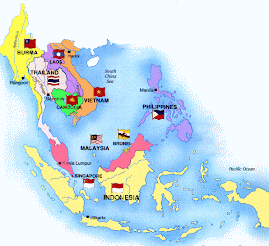- EU boost for domestic SMEs in biomass sector
- Oil palm biomass offers huge potential, RM30bil in income
The 2nd article discusses the National Biomass Strategy 2020. This strategy describes utilising an additional 20MillionT of oil palm industry biomass by 2020 for higher value activities. The document does acknowledge the importance of biomass nutrients for the plantations... "Biomass should not be removed from the field without consideration of its nutrient value and protection to the top soil. However there is the potential to retain in the field the portion of the biomass that has the highest nutrient value but the lowest downstream value, as represented by its carbohydrate content, and replace the balance with inorganic substitutes."
Biochar production and utilisation within the plantation could provide new options and additional flexibility for the proposed strategy...
- The organic carbon currently provided by the retention and/or return of biomass to plantation soils is very transient in the tropical conditions. It will be consumed on an annual basis along with the regular application of organic or inorganic fertilizers. Biochar offers a 'permanent' organic carbon addition, potentially freeing up more biomass for alternative uses.
- Biochar will improve the nutrient use efficiency by reducing NPK leaching losses and soil gas emissions (CO2, methane & nitrous oxide).
- The reduced requirements for fertilizers and their improved retention in the soil will reduce pollution of water tables, streams, rivers and catchments.
- Biochar positive effects on plant growth, health and productivity are well documented. There is reason to believe that these benefits will also translate into benefits for the oil palm - particularly for tropical soils.
- Biochar has proven soil remediation benefits (for both organic & inorganic contaminates). Soils damaged by mining or contaminated by industry may be put back into service. Agriculture on bris soils may be improved.
- New products and industries can be established that relate to the soil amendments, animal feeds, waste management, building products, green roofs, urban water gardens & swales.
- Pyrolysis systems offer localized processing solutions for 'thinly distributed biomass'. Transport and infrastructure costs often kill large biomass projects. Pyrolysis is scalable for source locations such as palm oil mills or mobile plantation processing.
- New 'slow' pyrolysis technology offers multiple product streams,
- carbon (biochar, bio-coal, torrified fuels, charcoal, activated carbon, industrial carbon, super-capacitors)
- bio-oil (boiler fuel oil, refining for chemicals & transport fuels, organic pesticides and plant foliate)
- pyrolysis gas (process heating, renewable energy production, advanced gas reprocessing, fuel cells)
- process heat
- carbon credits (carbon sequestration and emissions reduction).





No comments:
Post a Comment